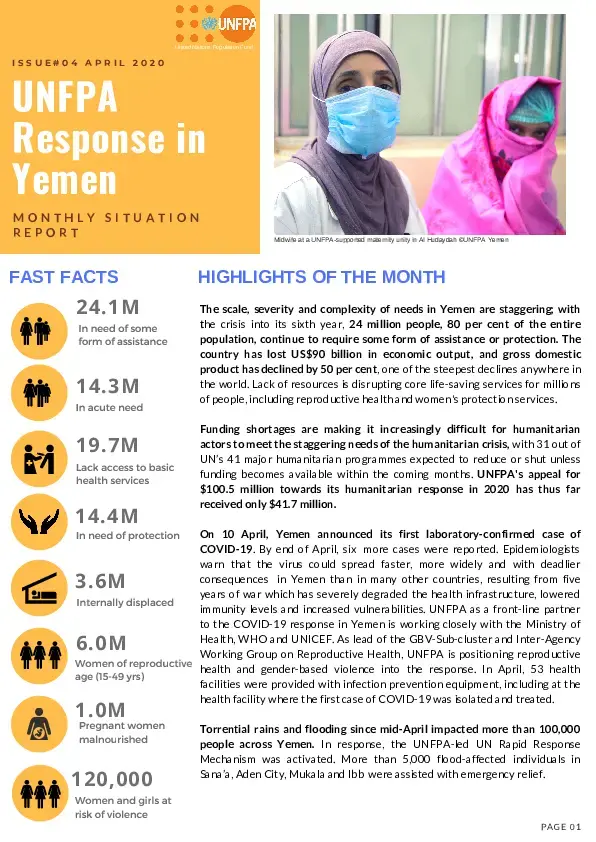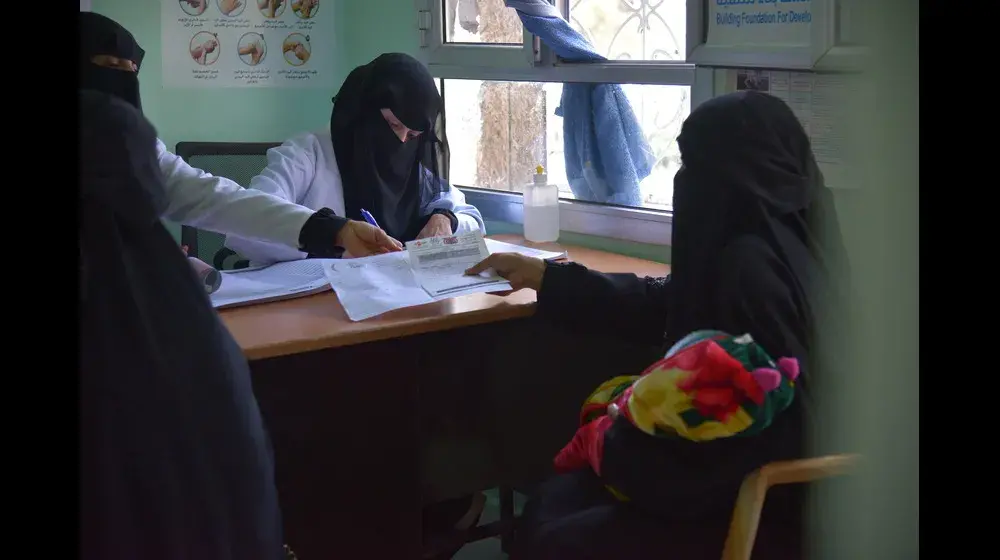The scale, severity and complexity of needs in Yemen are staggering; with the crisis into its sixth year, 24 million people, 80 per cent of the entire population, continue to require some form of assistance or protection. The country has lost US$90 billion in economic output, and gross domestic product has declined by 50 per cent, one of the steepest declines anywhere in the world. Lack of resources is disrupting core life-saving services for millions of people, including reproductive health and women's protection services.
Funding shortages are making it increasingly difficult for humanitarian actors to meet the staggering needs of the humanitarian crisis, with 31 out of UN’s 41 major humanitarian programmes expected to reduce or shut unless funding becomes available within the coming months. UNFPA's appeal for $100.5 million towards its humanitarian response in 2020 has thus far received only $41.7 million.
On 10 April, Yemen announced its first laboratory-confirmed case of COVID-19. By end of April, six more cases were reported. Epidemiologists warn that the virus could spread faster, more widely and with deadlier consequences in Yemen than in many other countries, resulting from five years of war which has severely degraded the health infrastructure, lowered immunity levels and increased vulnerabilities. UNFPA as a front-line partner to the COVID-19 response in Yemen is working closely with the Ministry of Health, WHO and UNICEF. As lead of the GBV-Sub-cluster and Inter-Agency Working Group on Reproductive Health, UNFPA is positioning reproductive health and gender-based violence into the response. In April, 53 health facilities were provided with infection prevention equipment, including at the health facility where the first case of COVID-19 was isolated and treated.
Torrential rains and flooding since mid-April impacted more than 100,000 people across Yemen. In response, the UNFPA-led UN Rapid Response Mechanism was activated. More than 5,000 flood-affected individuals in Sana’a, Aden City, Mukala and Ibb were assisted with emergency relief.




